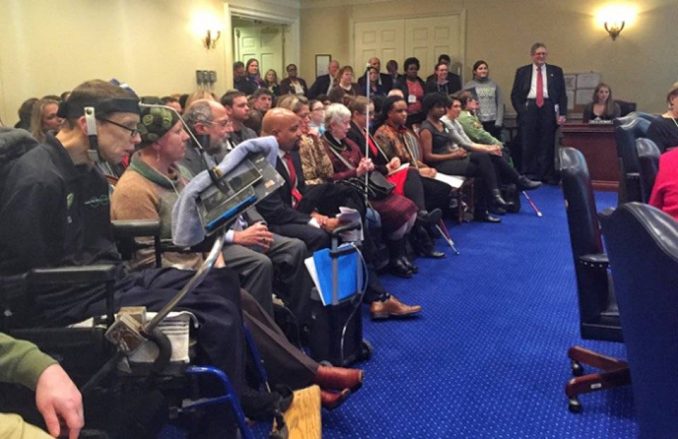Alaska ends subminimum wage
Feb. 23 — Alaska became the third state to eliminate subminimum wage for disabled workers. The law in Alaska takes effect immediately.
“Workers who experience disabilities are valued members of Alaska’s workforce,” Greg Cashen, acting commissioner of Labor and Workplace Development said. “They deserve minimum wage protection as much as any other Alaskan worker.” (alaska-native-news.com, Feb. 19)
Paying subminimum wages to disabled workers has been standard practice in the United States since 1938. Although the Fair Labor Standards Act has been amended many times, its provision that allows employers to pay subminimum wages to people with disabilities, as well as to prisoners, immigrants and domestic workers, to name a few categories, has never been changed.
Meantime, Goodwill Industries continues to profit from low-paid labor. Goodwill’s profits have funded CEO salaries totaling $30 million.
The National Federation for the Blind and the Autistic Self Advocacy Network have long advocated changing the subminimum wage provision.
“The Fair Labor Standards Act fails to provide training or employment.” They quote data that shows that fewer than 5 percent of workers in sheltered workshops will transition to competitive integrated work. That means 95 percent of the people working in subminimum wage work will spend their entire working life in these facilities.
New Hampshire was the first state to eliminate a subminimum wage. The bill was signed by Gov. Maggie Hassan in May 2015 and took 60 days to go into effect. Maryland was the second state to eliminate a subminimum wage. The law there will phase out subminimum wages, ending them totally by 2020.
In 2014, President Barack Obama issued an executive order stating that federal workers had to be paid at least $10.15 an hour, including people with disabilities. The order did not, however, prohibit employers from paying workers with disabilities less than other workers, as long as it was at least $10.15 an hour.
Workers World Party has consistently supported demands to eliminate subminimum wages.
Kaessinger is a wheelchair user and disability rights activist.


